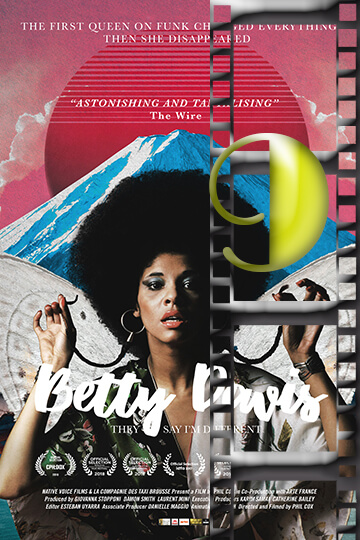



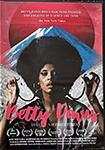
WHAT’S IT ABOUT
Betty Davis arrives on the ’70s scene to break boundaries for women with her daring personality and outrageous funk music. She then, despite being banned and boycotted, goes on to become the first black woman to perform, write, and manage herself.
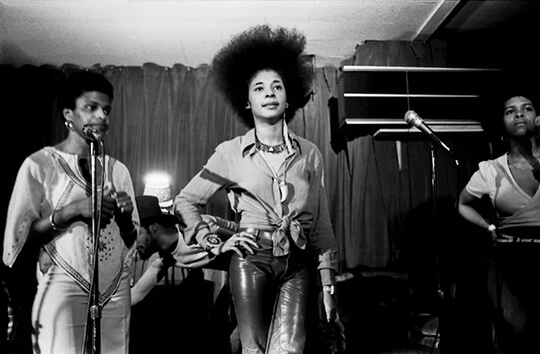
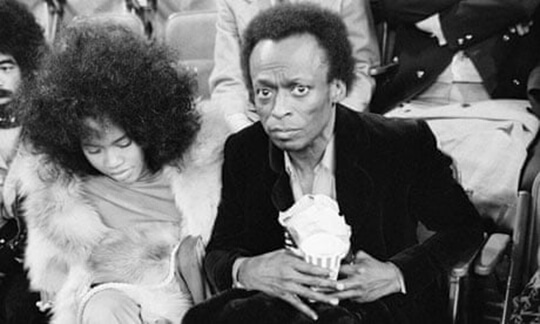
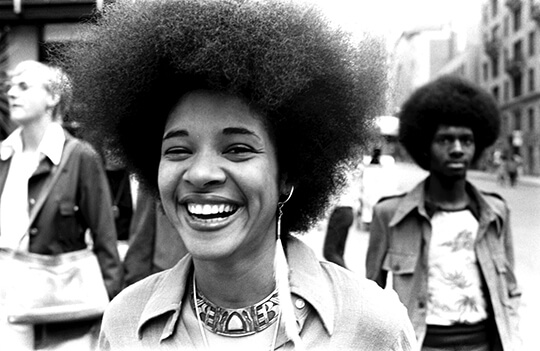
MOVIESinMO REVIEW
Let me tell you about a documentary that hit me like a ton of bricks. “Betty Davis: They Say I’m Different” (2017) digs up the life of one of the funkiest sisters to ever grab a mic—a woman who should be mentioned in every conversation about funk pioneers but was mysteriously erased from music history. First things first: Betty Davis was not playing. In the early 1970s, when most female singers were playing safe, Betty ripped onto stages in wild outfits, singing straight-up about sex and moving her body wherever she damn well pleased. The film shows exactly why they said she was “different”, because she was on another level altogether. “I was different, and they couldn’t handle it,” says Betty in one of the film’s few recordings of her voice. That’s an understatement. Her music was too raw for radio, too real for TV, and way too funky for mainstream. But this documentary makes one thing clear—her “different” style changed the game forever, though she did not get her flowers when she could still smell them. Before Betty was melting stages, she was turning heads in fashion. As a model in New York City, she already had her distinctive look and unshakeable confidence in her favor. The documentary follows her path from those fashion days to her rise as a musical force. Her marriage to jazz great Miles Davis lasted only a year, but don’t get it twisted—she left a lasting impact on his music. Betty exposed Miles to the music of Jimi Hendrix and Sly Stone, which had a direct influence on his revolutionary fusion period. As one historian in the film says, “She didn’t just marry Miles—she rewired his musical brain.” That is power. What really comes through in this documentary is the detailed degree of control Betty exercised over every aspect of her craft. Between 1973 and 1975, she put out three records that were nothing like anything else on the shelves—funk explosions that still blast through your speakers today. In an era when the business was treating Black women artists like puppets, Betty wrote all her own music, produced her own sessions, and managed her image with an iron grip. The interviews with her former band members had me nodding—these middle-aged men are still obviously in awe of her leadership. One guitarist remembers, “She knew exactly what she wanted. Nobody told Betty what to do.” The documentary shows how she provoked her musicians into playing harder and funkier than they ever thought possible. Her sound was like James Brown’s rawness mixed with Hendrix’s wildness and something completely her own. Looking at this, I couldn’t help but consider all of the artists that came after—Prince, Rick James, Monie Love, Missy Elliott—who stood on the shoulders Betty built. The film does not shy away from what occurred to cause Betty’s career to burn out so fast. Honestly, America just wasn’t ready for a Black woman embracing her sexuality and power so blatantly. Radio stations blacklisted her. Religious groups demanded her head. Even Black radio would not play her music. One of the more painful sections shows how the NAACP actually fought against her, stating that her image was harming the community. The double standard is apparent—brothers could be as sexual as they wanted, but if a sister did the same, she was a problem. The hypocrisy is revealed in the documentary. In interviews and in rare footage, we see Betty becoming more frustrated as doors kept slamming shut in her face. Despite making music that was ahead of everything else, she was not able to garner the support needed to reach the people. The most interesting thing about this documentary to me is trying to solve the mystery: Why did Betty just walk away? After putting out her record “Nasty Gal” in 1975, she simply vanished from the public eye. For decades, nobody knew what had happened to Betty Davis. Was she broke? In jail? Dead? The truth, it turns out, is both less dramatic and more significant—she went back to Pittsburgh, choosing peace over fame. The movie suggests that being “different” exacted a high price from Betty. The constant fights with record labels, critics, and societal expectations wore her spirit down. Her disappearance was not about leaving music behind so much as it was about saving herself. When the filmmakers do finally catch up with the reclusive Betty, it’s a dramatic moment. She shares bits of her story after years of quiet, although mostly in voice recordings and not on camera. Her voice—aged but still distinctly Betty—provides the soul of the tale. We find out that Betty found her own sort of anonymity outside the spotlight, even if it was at the cost of her groundbreaking work being eradicated for decades. As one journalist puts it, “She disappeared so completely that even hardcore music heads thought she might be a myth.” What amazed me most about viewing this documentary is finding out about Betty’s massive influence on music today. The film includes current artists discovering her recordings and being astonished. Artists ranging from hip-hop to rock discuss learning about a musical ancestor they weren’t aware they had. Betty never lived to see her impact. While she lived incognito in Pittsburgh, her music was being found by new generations of people who immediately heard her brilliance. This is the point the documentary makes: Betty’s bold genre-bending music and identity opened the door for artists today who fuse genres and assert their truth unapologetically. This documentary is not about excavating lost Black musical history for the sake of it. It’s about understanding how change actually happens. Betty busted doors through which later artists could walk unscarred. She paid dearly for being ahead of her time, but her courage changed music forever. The film leaves you wondering what might have been if the world was ready for Betty Davis. How many more albums? What new sounds? But it also celebrates what she did manage in those few fiery years. I appreciate how the documentary suggests that Betty’s disappearing act was perhaps her final act of self-will. In an industry determined to manage Black women, walking away was perhaps her last power move. As Betty herself sums it up, “I didn’t quit. I just turned in another direction.” For young folks today trying to be themselves in a world that needs everybody to look and sound the same, Betty’s story is required viewing. Being different is not just okay—it’s how anything moves forward. The only thing that keeps it from being perfect is that I wished for more footage, more Betty, and more insight into those lost decades. But what we have here is gold, a crucial story about a sister who would not be anything other than herself in an industry and world that insisted she get smaller. As a documentation of an artist who deserves a place in every music history book but was somehow deleted, this documentary does the job of bringing respect back to Betty Davis’s name.
OUR RATING – A REVOLUTIONARY 9
MEDIA
- Genre – Documentary
- Street date
- Digital – November 2, 2017
- DVD – January 17, 2020
- Video – 1080p
- Screen size 2.39:1
- Sound –English: Dolby Digital 5.1
- Subtitles – English SDH
Extras
- Director Interview: Phil Cox on the making of Betty – They Say I’m Different
- Interview Extract with Betty Davis

